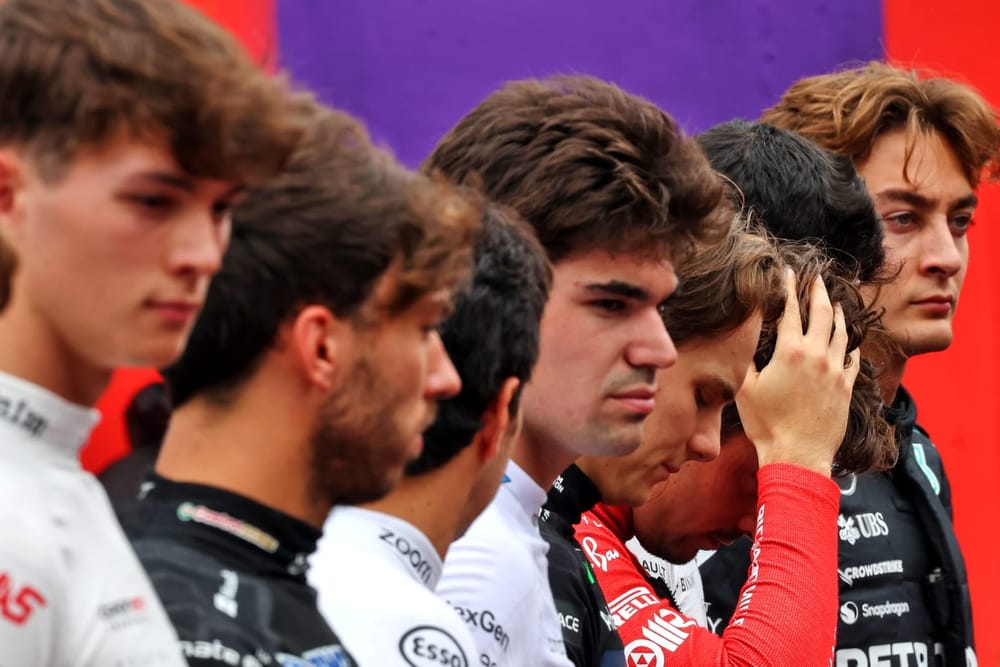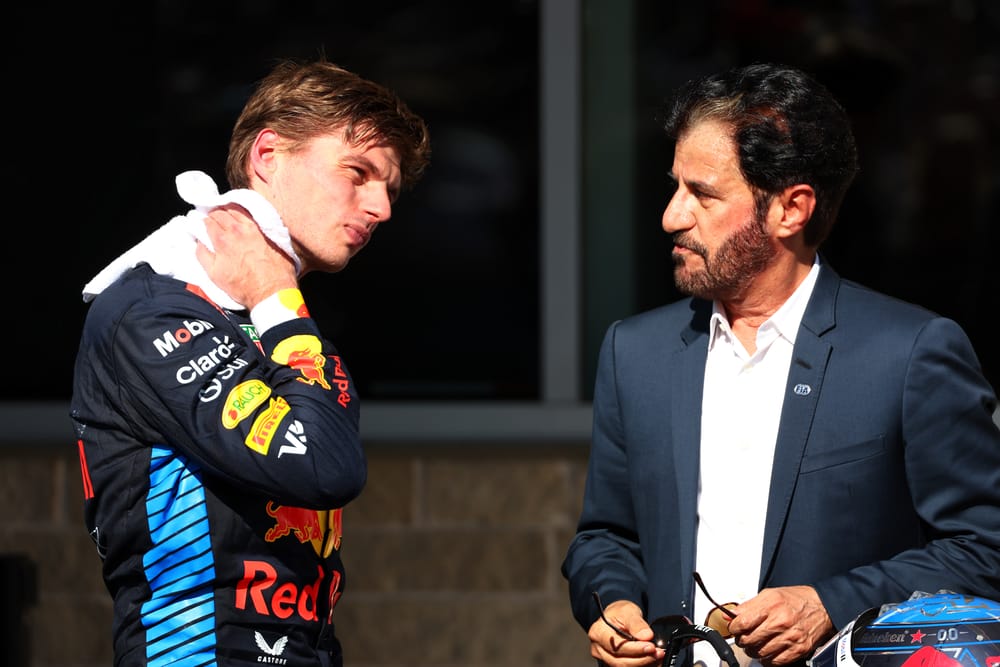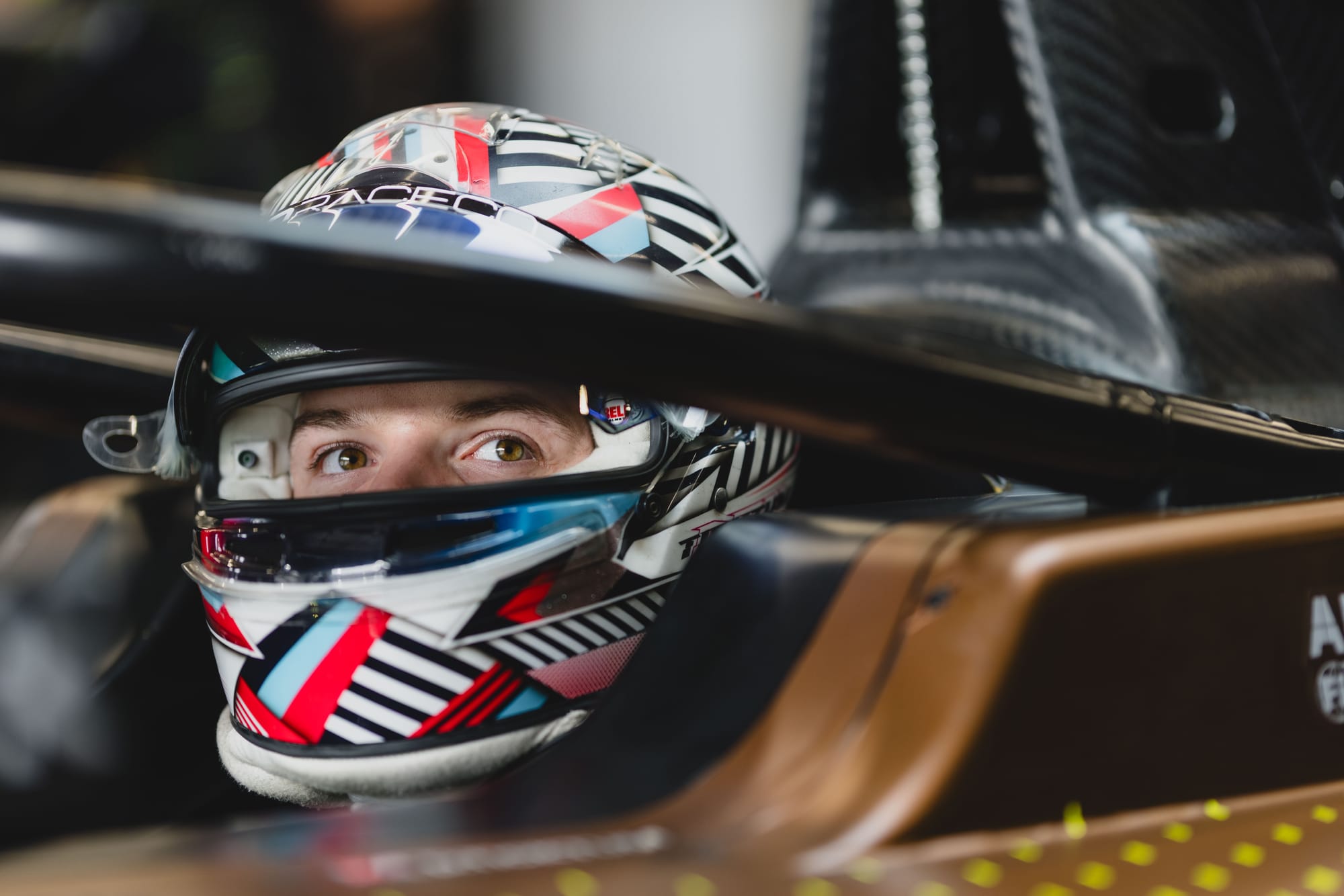Swearing hitting the headlines in two other FIA world championships over the weekend demonstrated the tightrope Formula 1 drivers will be walking - with potential race bans at stake - under the updated rules around misconduct.
The ongoing tension between FIA president Mohammed Ben Sulayem and F1 drivers over how swearing and anything else that could be categorised as misconduct is policed and punished escalated last month with the publication of the updated appendix B of the International Sporting Code covering penalty guidelines for stewards.
That specified an escalating series of penalties that rises through fines to a one-month suspension for drivers found guilty of a third misconduct offence.
Though these are only guidelines for stewards to apply to individual cases at their discretion, drivers will not want to count on the uncertain prospect of potential leniency when they risk being sidelined for a month.
Events of the past weekend have given F1 drivers a little more clarity - but not a lot of security.
The WRC case
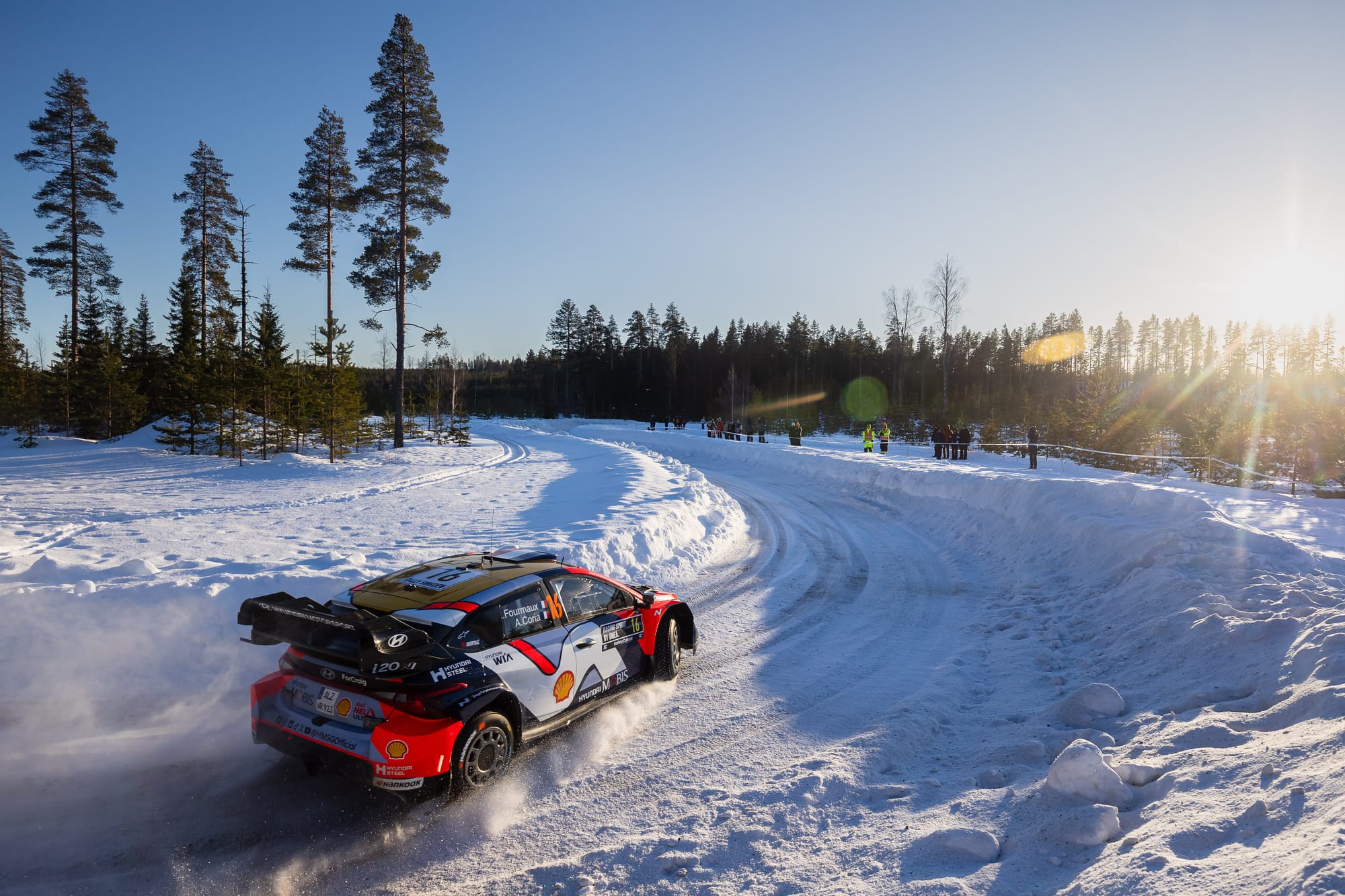
Hyundai World Rally Championship driver Adrien Fourmaux became the first person to fall foul of the new system for saying "we f***ed up yesterday" during his interview on the live television broadcast of the final stage of Rally Sweden.
The 'base fines' under the new FIA system are multiplied depending on the seniority of the championship, with F1 fines quadrupled and WRC fines tripled from the base rate.
That should have meant a €30,000 fine for Fourmaux, but the Sweden stewards elected to suspend €20,000 of it for 12 months due to various mitigating factors including Fourmaux's previous good conduct, his apology and the fact he was speaking in his second language.
The stewards' report cited:
"The expression used is a rather colloquial term in certain cultures and was not intended to be offensive. The driver has acknowledged that it was a lapse in judgement, expressed in the heat of the moment immediately after finishing SS18.
"The remark was self-referential, directed solely at the driver's own performance, and was not aimed at any other individual or entity. There is no evidence to suggest that it meant to cause offence to any other party.
"The driver immediately recognised the inappropriate nature of the comment and issued an unprompted apology to the stewards and the FIA. Furthermore, he voluntarily committed to posting a public apology on his social media account, which has since been published.
"The driver has assured the stewards that he shall exercise greater caution in the future."
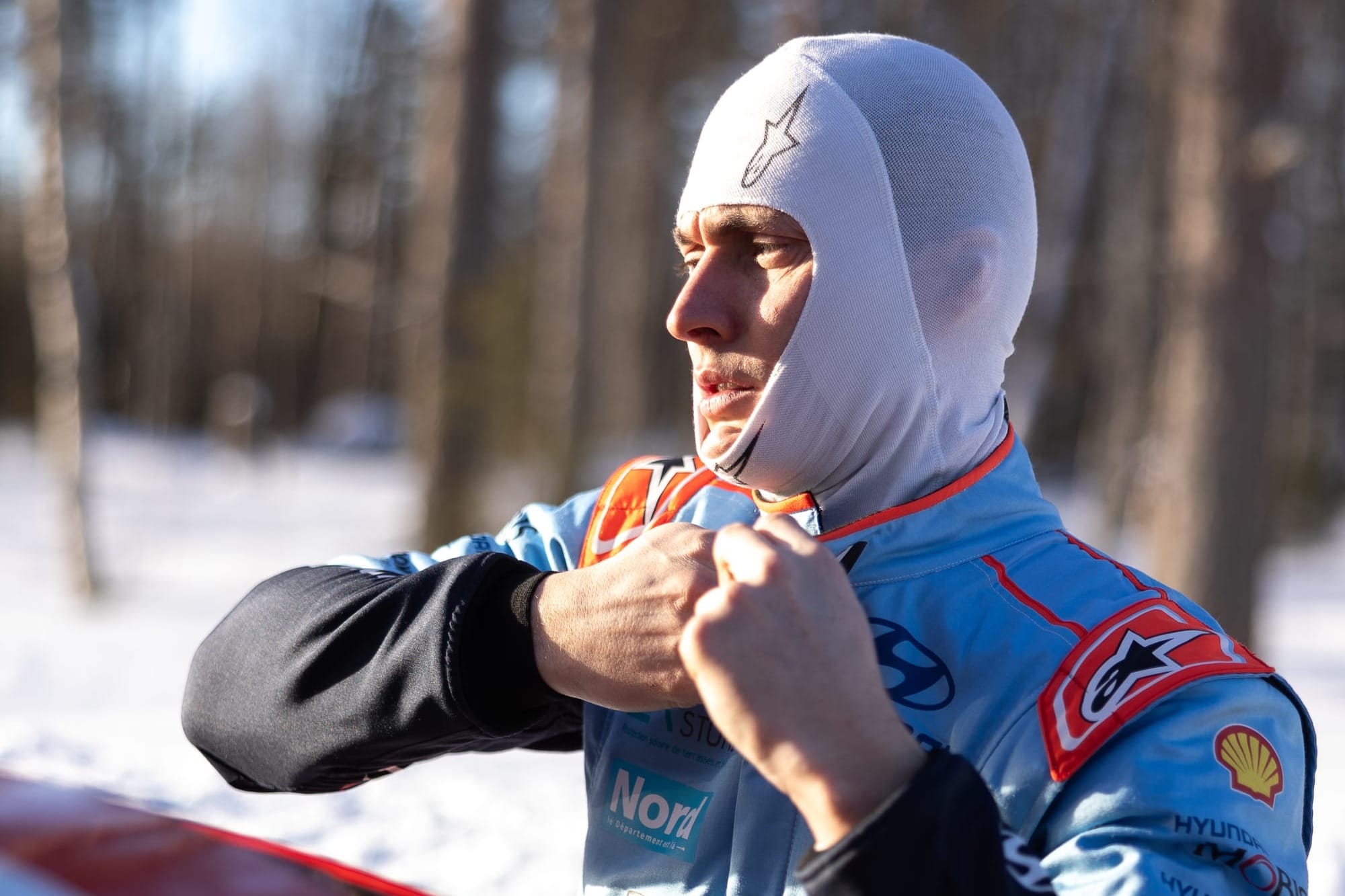
Elsewhere in the report, the stewards wrote: "The stewards and the FIA acknowledge that the words in question have unfortunately become common colloquialisms. However, it is essential to emphasise that this does not diminish the fact that such language is widely regarded as profanity and is inappropriate in public discourse, including live television broadcasts."
Though the interview in which Fourmaux swore happened immediately after the final stage, the errors he was castigating himself for had happened on the previous day. He had been among a group of drivers fighting for victory when he lost time by stopping to fasten his helmet having begun a stage without it properly secured then crashed two stages later, leaving him only 40th in the final classification.
The Formula E case
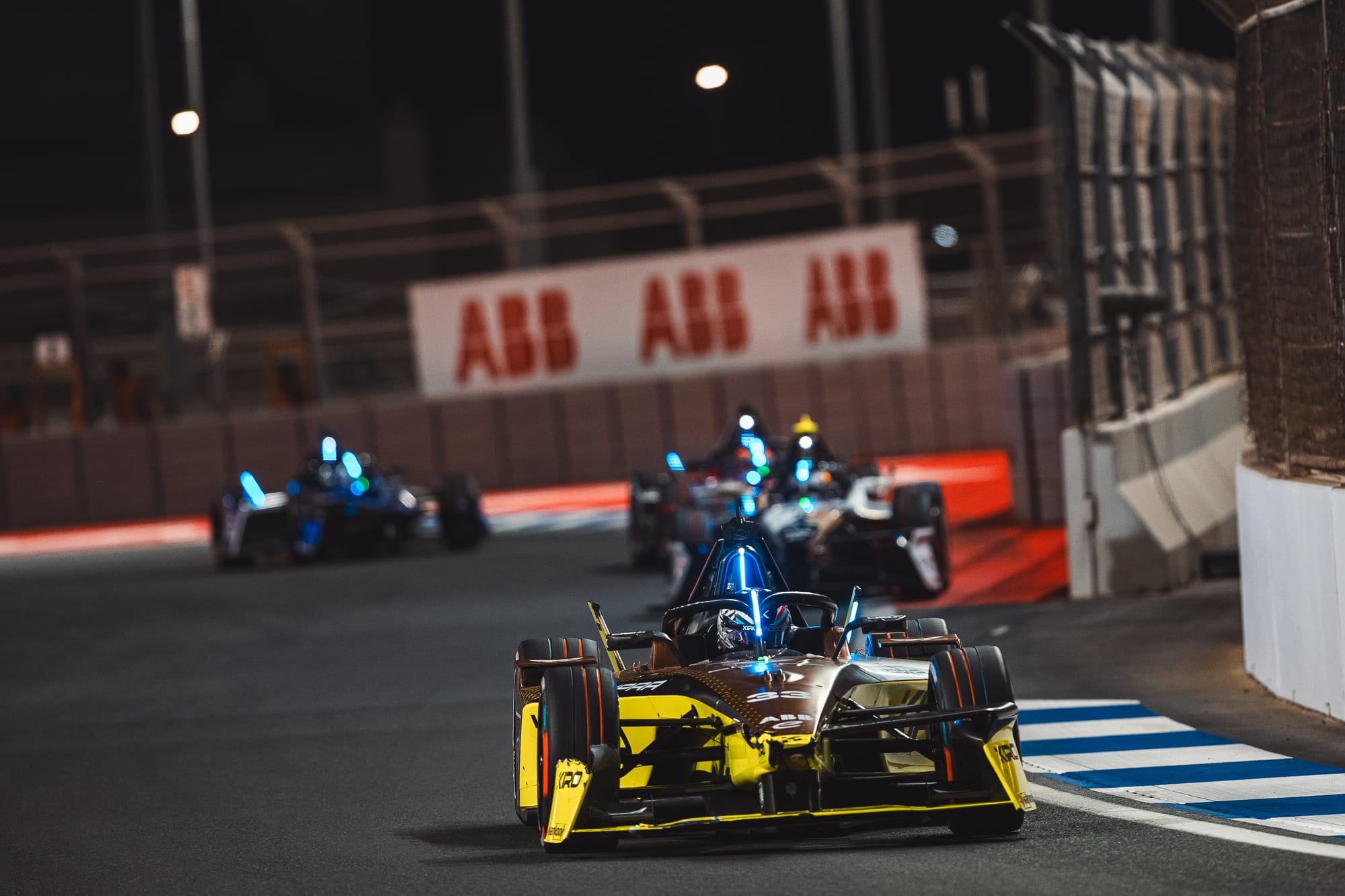
Earlier in the weekend, Kiro Formula E driver and sometime F1 seat contender Dan Ticktum attracted substantial social media attention over the transcript of a radio conversation featuring nine uses of f*** or f***king.
Ticktum was running sixth in the first Jeddah race - his most competitive performance since his team's off-season reorganisation and switch to a Porsche powertrain - before the need for a systems reset at his fast-charging pitstop consigned him to an eventual 18th place.
His radio was not featured on Formula E's live television broadcast, but it was available in real-time on Formula E's official app, which cites "unfiltered driver radio" as a key selling point. All F1 drivers' team radio is available on the championship's own app too.
Lessons for F1 drivers
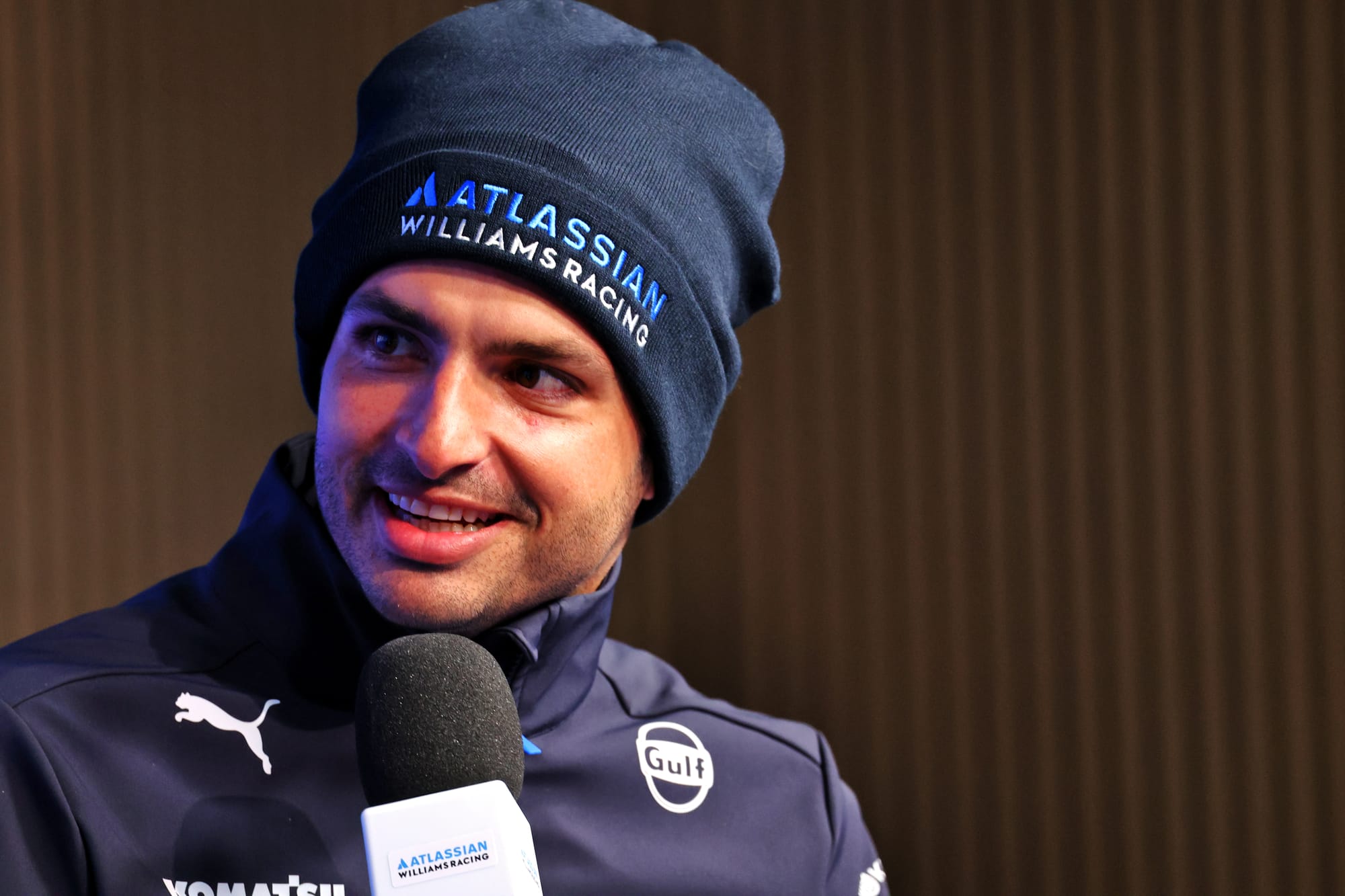
Despite the radio transmissions being available to app users in both F1 and Formula E, The Race understands that the FIA regards them as 'semi-private' conversations that stewards will not clamp down on. While Ticktum's outbursts therefore attracted plenty of attention from both his defenders and detractors on social media, they didn't attract any from the stewards.
During Williams's 2025 F1 car launch on Friday, Carlos Sainz urged the FIA to take a sensible approach to new punishments.
Admitting he hadn't yet received any direct communication from the FIA about them and was working from media coverage only, Sainz accepted the likelihood of swearing in official press conferences being punished but urged for radio conversations to be exempt.
"My honest opinion - I'm going to try to be as honest as possible - is that in controlled environments like here, press conferences, drivers should be mature enough to know when to control swearing," said Sainz.
"I don't think we should be swearing in those situations, and I think we're old enough and sane enough to know what to say and not to say. For me that's just a matter of education and manners.
"Now, what we say on the radio. I think you cannot be too tough on this kind of thing, because you cannot understand the pressure, the adrenaline and the way we feel inside the car when we open that radio.
"And I honestly think for F1 it's good to have those kinds of moments. Because you see the real driver.
"We are already very constrained as Formula 1 drivers to what we can tell you about our teams, about our situations, we already have a lot of media briefings, they already tell us what to say sometimes and not to say on the radio.
"But when you hear that passion, when you hear those words, even if sometimes we swear on the radio, for me that's a keeper in Formula 1 and that shouldn't be something we should get rid of."
Sainz will therefore be relieved when he officially receives the expected clarification that radio swearing should not put drivers at risk of fines or on the route to a race ban.
Fourmaux's case raises a grey area with potential F1 implications, though.

F1 has no direct equivalent of the long-established rallying practice of stage-end interviews, where TV crews and other journalists interview drivers live through their car windows seconds after they've crossed the finish line.
But immediate TV interviews on the grid for F1's top-three finishers or qualifiers are standard and drivers can arrive in the post-race media pens rapidly after a race finish or an early retirement.
While Fourmaux's swearing was prompted by the disappointing rally result he'd just achieved, the topic was errors from the previous afternoon. The stewards cited the 'heat of the moment' element as one of the mitigating factors for suspending much of the fine, but potentially could've dismissed that given he'd had nearly a day to come to terms with what he was specifically swearing about.
And will this fine being part-suspended mean there's a more lenient line on Fourmaux if he gets up to three 'misconduct' offences? He'd have to depend on that event's stewards' individual interpretation of what he'd done.
F1 drivers can be pretty confident they must watch their language in FIA press conferences but needn't worry on team radio.
But as Fourmaux's case shows, a post-race TV interview about an earlier incident is liable for a sanction that's likely to count as a first strike of three. His punishment shows F1 drivers where the FIA's line is, but not necessarily how wide that line is.

